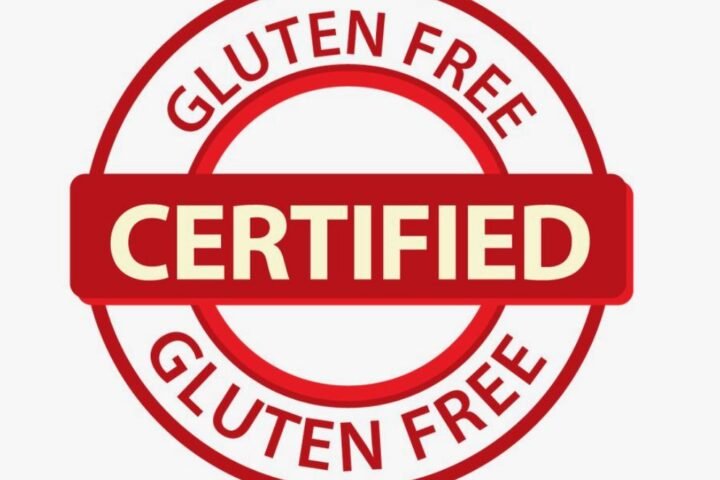In today’s health-conscious world, gluten-free certification has become a significant standard for food manufacturers, restaurants, and health brands. With the rising number of individuals diagnosed with Celiac disease and gluten sensitivity, ensuring that food products are free from gluten is essential. Gluten is a protein found in wheat, barley, and rye. For people who are sensitive or allergic to it, even trace amounts can cause serious health issues. This is where gluten-free certification plays a crucial role—it provides consumers with peace of mind that the product they’re consuming meets strict gluten-free standards.
Many people also choose gluten-free products for general wellness, even without medical necessity. Whether due to health concerns or lifestyle choices, there’s a growing market for gluten-free food and beverages, and certification adds an extra layer of trust. It tells customers that the product has been tested, verified, and meets internationally recognized gluten-free standards.
Who Needs Gluten-Free Certification and What It Covers
Gluten-free certification is not only important for large food manufacturers but also for small businesses, cafes, restaurants, and personal care product companies. Any business that makes a claim about being “gluten-free” on packaging or menus should consider undergoing certification. This is especially crucial for companies distributing to international markets, where strict gluten-free labeling laws may apply.
Certification typically includes testing of ingredients and finished products, inspection of manufacturing processes, and auditing of facilities. It ensures that gluten-free claims are not just marketing gimmicks but are supported by consistent and transparent practices. Some programs may also include testing for cross-contamination, especially for facilities that process both gluten-free and gluten-containing items.
Different Gluten-Free Certification Programs Available
There are several globally recognized gluten-free certification programs, and each comes with its own set of standards. Among the most prominent are:
- Gluten-Free Certification Organization (GFCO): This is one of the most trusted gluten-free certifications in the United States. GFCO requires products to contain less than 10 parts per million (ppm) of gluten, which is stricter than the FDA’s threshold of 20 ppm.
- Celiac Support Association (CSA) Seal of Recognition: This program sets one of the most rigorous standards in the world—requiring products to test below 5 ppm of gluten.
- National Celiac Association (NCA): Offers a “Gluten-Free Certification Program” that is globally recognized and covers comprehensive production, handling, and testing protocols.
- BRCGS Gluten-Free Certification: This is widely used for international exports and provides cross-border market access for manufacturers.
Choosing the right certification body depends on the business’s target market and the level of assurance it wishes to provide to its consumers.
The Certification Process: Step by Step
The gluten-free certification process typically begins with an application to the certifying agency. Businesses are required to submit detailed documentation regarding their ingredients, suppliers, recipes, manufacturing practices, and cleaning procedures.
Once the documentation is reviewed and accepted, the certifying body will usually schedule an on-site audit of the facility. This includes reviewing production lines, examining storage practices, and evaluating the risk of cross-contamination. After a successful audit, products are tested to ensure they meet the required gluten-free thresholds. Only then can the business display the official gluten-free seal on its product packaging or menu.
Periodic audits and testing are usually part of ongoing compliance. This ensures that businesses maintain the same gluten-free quality over time and don’t deviate from certified practices.
Benefits of Gluten-Free Certification for Brands
For brands looking to differentiate themselves in a crowded market, gluten-free certification provides an undeniable competitive edge. First and foremost, it builds trust with health-conscious consumers. When shoppers see a certified gluten-free label, they are more likely to choose that product over uncertified competitors, especially those with health issues or dietary restrictions.
Secondly, it opens doors to niche markets such as organic health stores, gluten-free specialty shops, and even global retailers that require third-party certification before listing a product. Additionally, restaurants and cafes that advertise certified gluten-free options attract a loyal customer base, many of whom actively seek out safe dining spaces.
From a marketing perspective, having gluten-free certification increases brand credibility and enhances customer loyalty. It also minimizes the risk of legal issues arising from false claims, which could otherwise damage a brand’s reputation and financial stability.
Gluten-Free Certification and Global Market Trends
As global demand for gluten-free products continues to grow, gluten-free certification is becoming a gateway to international expansion. Countries like Canada, the UK, Australia, and parts of the EU have strict labeling laws for gluten-free products. In some regions, failure to meet the required standards can lead to product bans or recalls.
According to market research, the global gluten-free food market is expected to reach over $15 billion in the next few years. This growth is driven by increasing health awareness, rising cases of gluten intolerance, and consumer demand for transparent labeling. Businesses that invest in certification now are better positioned to capitalize on this expanding market.
How to Choose the Right Certification Partner
When selecting a gluten-free certification provider, businesses should consider several factors:
- Credibility of the certification body
- Cost of initial and recurring audits
- Turnaround time for application and approval
- Scope of testing and facility inspection
- Support and resources provided during the process
Choosing a reputable partner ensures the certification is recognized not only locally but also in international markets. It also helps in aligning your brand with the highest safety and quality standards in the industry.
Conclusion: Gluten-Free Certification is a Smart Investment
In conclusion, gluten-free certification is more than just a marketing label—it’s a commitment to quality, transparency, and consumer well-being. As awareness of gluten-related health issues increases, so does the demand for certified products that customers can trust. For businesses of all sizes, obtaining gluten-free certification ensures compliance, enhances credibility, and opens doors to new markets.
For those aiming to thrive in the competitive health food space, gluten-free certification is a valuable step toward long-term success. And when it comes to supporting brands that deliver certified gluten-free solutions, caratga stands as a reliable and forward-thinking name in the industry.











